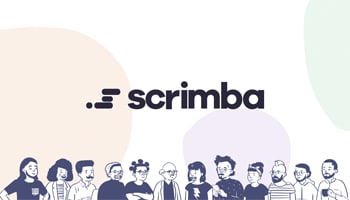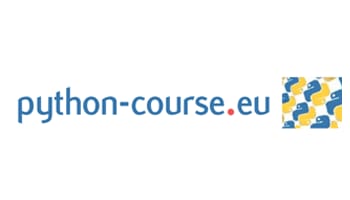There’s no better time to learn Python for free than today!
If you were to ask many experienced developers the question “Which programming language should I learn?”, Python would almost definitely be in the top range of their list.
Python is a powerful programming language that's widely used in software development, scientific research, and data analysis. It's also one of the easiest languages to learn, making it perfect for beginners who are just starting to explore the world of programming.
The great news is that if you want to learn Python, you certainly don’t need to break the bank as there are many free online learning resources out there to get you started.
Up next is a list of 9 free resources for learning Python for free. They are great for whether you’re a complete newbie or if you have some programming experience under your belt, you’ll be able to build up your Python skills in no time.
With Python, you'll have the power to automate tasks, create data visualisations, build web applications, and much more.
Now let’s take a look!
#1 - Codecademy
Codecademy's Learn Python course is the perfect starting point for new programmers. You'll learn the basics of Python, the world's fastest-growing programming language used in software engineering, data analysis, scientific research, and much more.
By the end of the course, you'll have a solid foundation in both programming concepts and Python itself, making you comfortable enough to take your skills beyond the platform and into the real world.
#2 - Scrimba
The Scrimba Learn Python tutorial consists of 58 parts, featuring a mix of concise tutorials and interactive coding challenges. Each tutorial lasts between 4-8 minutes, and after each tutorial, there is a hands-on coding challenge that reinforces the concepts covered in the tutorial.
The course is designed to give a solid foundation of the basic concepts in Python programming, and users can stop, test, modify, or spin off the code at any time. There is also a Facebook group where learners can discuss their experiences and ask questions, and the instructor is active in the group.
#3 - LearnPython.org
LearnPython.org is a free interactive tutorial for anyone who wants to learn the Python programming language. The site offers a series of chapters, each with interactive coding challenges and instructional videos by expert instructors. Plus, you can join the LearnPython.org Facebook group for questions, discussions, and updates.
Once you've completed the tutorials, you can earn your Python certification at LearnX and add it to your LinkedIn profile. LearnPython.org is supported by DataCamp, which offers online interactive Python tutorials for data science, so you can start learning Python for data science today.
#4 - freeCodeCamp
freeCodeCamp's Scientific Computing with Python Certification is a comprehensive course that teaches you the fundamentals of Python, including variables, loops, conditionals, and functions. You'll quickly progress to more complex topics such as data structures, networking, relational databases, and data visualisation.
As Python is a popular and flexible programming language that can be used for everything from basic scripting to machine learning, this certification course will help you develop the skills you need to succeed in a variety of industries.
#5 - Google for Education
Google's Python Class is a free course for those who have some programming experience and want to learn Python. The course includes written materials, lecture videos, and code exercises to practice Python coding. It is designed to introduce Python to those who have some programming experience and covers basic Python concepts like strings and lists, as well as more complex topics like processes and HTTP connections.
While the course is designed to be completed in two days, learners can work at their own pace and use the materials to enhance their Python skills.
#6 - Sololearn
Sololearn's Introduction to Python course is designed for beginners who want to learn Python. This course covers basic Python concepts and provides opportunities to build real-life projects and solve coding challenges.
You'll learn about foundational concepts, working with strings, user inputs, variables, conditional statements, lists, and functions. With no prior programming experience required, this course is a great starting point for anyone looking to learn Python.
#7 - Programiz
Programiz offers a comprehensive Python tutorial that covers all the fundamental concepts of the language. Their focus is on simplicity, with programming tutorials and examples written in simple, understandable language for beginners. They offer a free online compiler for web and mobile to practice coding.
Programiz's team of experts are dedicated to creating programming resources that are accurate and easier to understand. They believe in the "learn by doing" approach and provide complete examples for learners to run and edit code on their own.
#8 - Python-course.eu
Python-course.eu offers a comprehensive and detailed introduction to Python programming, suitable for both beginners and intermediate to experienced programmers.
The course provides many examples, exercises, and charts to help students understand the language, with a main focus on being suitable for self-study. The content is easy to understand while still maintaining the necessary technical depth, and it covers the interrelationships and special features of Python from the start.
#9 - Udacity
The Introduction to Python Programming course from Udacity is designed to teach you the basics of Python programming language and best practices. You will learn about data types and variables, use loops and conditionals to control program flow, and use data structures like lists, sets, dictionaries, and tuples to store related data.
You will also learn how to define and document your own functions, write scripts, handle errors, and find and use modules in the Python Standard Library and other third-party libraries.
As a whole, learning Python can be a fun and rewarding experience, whether you're a beginner or an experienced programmer. With a wide range of courses available online (especially freebies!), it's never been easier to start your Python journey.
From the basics of syntax and data types to more advanced topics like web development and machine learning, there's a course out there to suit your needs.
You’ll be a Python Pro in no time! 🐍
From your fellow ever-growing dev,
Cherlock Code
💙 If you liked this article...
I publish a weekly newsletter to a community of ever-growing developers, seeking to improve programming skills and stay on a journey of continuous self-improvement. Focusing on tips for powering up your programming productivity 🚀.
Get more articles like this straight to your inbox.
And stay in touch on 🐦 @evergrowingdev












Top comments (0)